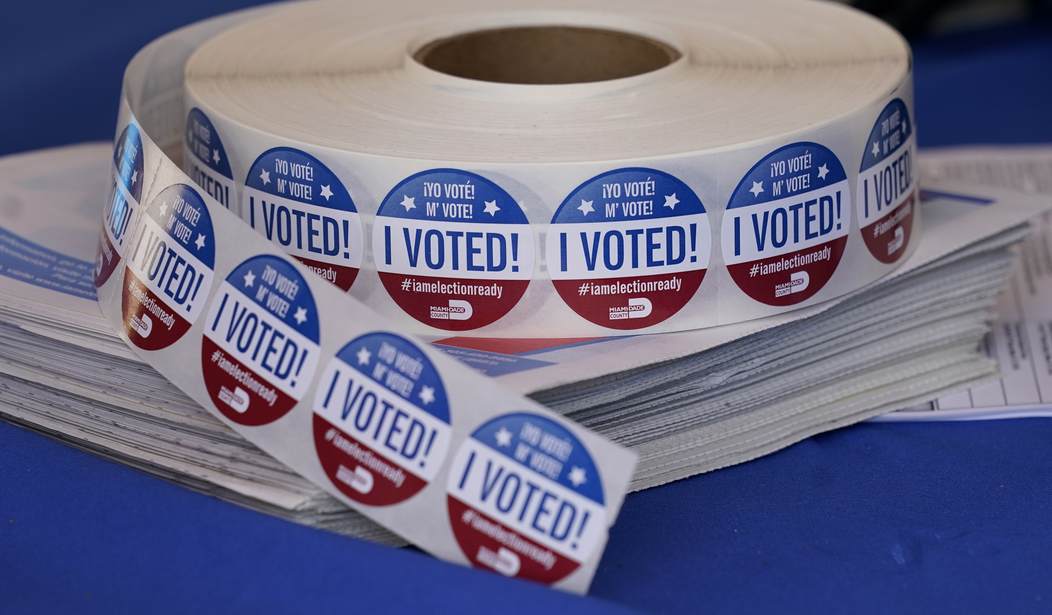A study released this month from MOXY, a "non-partisan social ecosystem," found that most Americans would fail a citizenship test.
A total of 1,033 responses were collected online from May 28 through June 2, to test respondents ability to pass a citizenship test required for those applying for naturalization. In total, only 42 percent passed. Independents by far did the best, with 54 percent passing. The passing rate was 44 percent for Republicans and just 35 percent for Democrats.
The breakdown by party affiliation came down to 19.53 percent of Independents, 39.65 percent of Republicans, and 39.84 percent of Democrats. The remaining 0.98 percent were "other."
It is worth noting about the results that the test provided to respondents was easier for them than it is for those actually applying for naturalization.
A copy of the report provided to Townhall noted:
The combination of twenty potential questions, along with the multiple-choice format of the questions — with the (discouraged) ability to reference external materials, makes the survey version of the test less difficult to achieve a passing score. Therefore, the reader of this report should take into account that performance on the actual test would likely have resulted in lower scores.
Despite the poor showing for American respondents, the Department of Homeland Security's U.S. Citizenship and Immigration Services indicates there is a 91 percent national pass rate as of March 2021 for prospective naturalized citizens.
In order to become a naturalized citizen, one must score at least six out of ten questions in a test administered orally.
The report's summary beginning by noting:
In this era of hyper-partisanship, political frustration and skepticism with governance, the question of how well voters understand the political process is ripe for inquiry. Residents of the U.S. learn civics in junior high school and seldom return to the subject.
Recommended
Such a point is made in the conclusions as well. "The results of this study indicate a compelling need for more civics education among the American population," the report also reads. Another part of the conclusion reads:
Abundantly clear through the entire study is that Americans’ knowledge and awareness of civics and U.S. history falls short of expectations, especially given the fact that their concerns, frustrations and skepticism of government runs quite high.
Townhall spoke with Cesar Melgoza, the founder of MOXY, about such a conclusion and the need for proper civics, including and especially when it comes to voting.
Students often do not return to civics, unless they purposefully study it later on in their education, Melgoza shared. "At the same time," he pointed out, "we're being asked to vote and vote responsibly and in an informed way." Melgoza also said that "the onus is on the voter to study and fill the void," even though voters "sometimes don't have that info" needed to be a properly informed voter.
Melgoza sees MOXY as being the way to do so. He explained to Townhall the process of voters making a profile, which includes providing information, so that the system can let users know who their elected officials and candidates are. From there, users can see news and forums tailored to the issues they've selected as being important to them.
With MOXY, Melgoza shared he wants "to give [users] the opportunity to see another point of view," and "force them out of the echo chamber."
MOXY is different from other social media platforms, which Melgoza suggests have created more divisions than anything else, as they've "amplified what makes people angry and built that into the algorithm."
Not only does Melgoza see MOXY as the benchmark for people to get better informed, but as "the antidote to the divisions created by social media in the political sphere."
MOXY is "deliberately" non-partisan as part of its mission, Melgoza emphasized.

























Join the conversation as a VIP Member